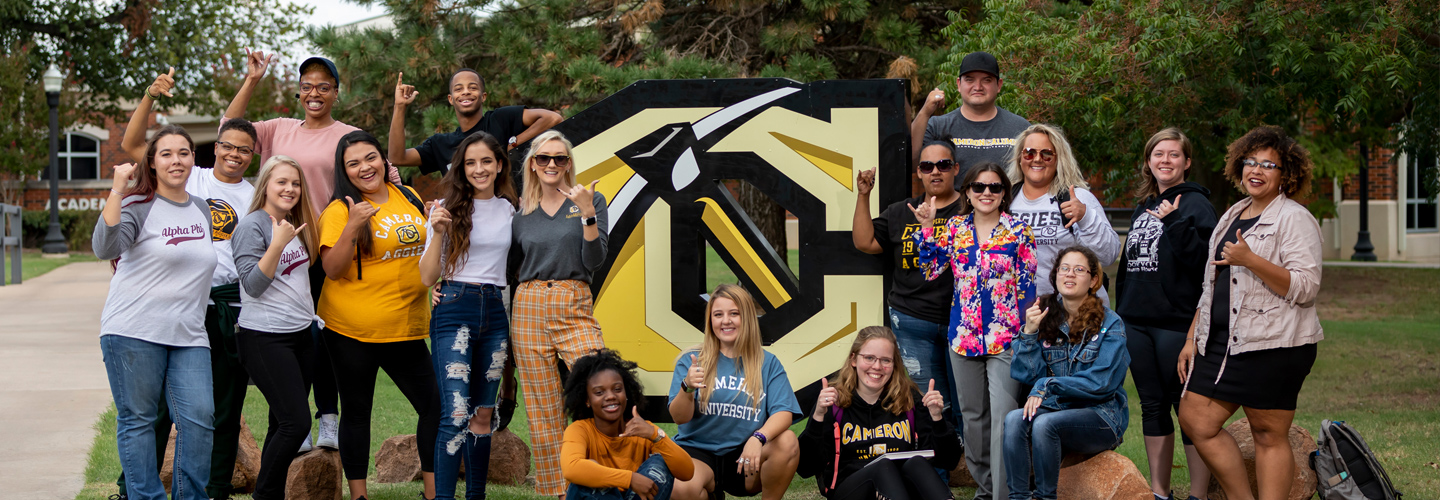PROGRAMS IN THE DEPARTMENT OF EDUCATION
350 - Elementary Education - BS
AY 2018-2019 Student Learning Outcomes
- Graduates will demonstrate competence in basic skills and in-depth knowledge of the subject matter they teach.
- Graduates will demonstrate professional knowledge and effective pedagogical skills.
- Graduates will demonstrate understanding of student development and create appropriate learning opportunities.
- Graduates will demonstrate ability to think reflectively and critically about the teaching/learning process.
- Graduates will demonstrate ability to interact effectively with diverse students, parents/families, and communities.
- Graduates will demonstrate ability to use a wide variety of strategies to assess, analyze, and modify teaching/learning.
355 - Early Childhood Education - BS
AY 2018-2019 Student Learning Outcomes
- Candidates will create environments that are healthy, respectful, supportive, and challenging for each child by applying their knowledge of young children’s characteristics, needs with consideration of the individual influences impacting a child's development and learning.
- Candidates will apply their knowledge to demonstrate that they value the importance of family engagement while acknowledging the complex characteristics of children’s families and communities by creating respectful, reciprocal relationships that support and empower families.
- Candidates will demonstrate knowledge of the goals, benefits and uses of assessment by using systematic observations, documentation, and other effective assessment strategies in a responsible way, in partnership with families and other professionals, to positively influence the development of every child.
- Candidates will use a wide array of developmentally appropriate approaches, instructional strategies, and tools to connect with children and families and positively influence each child’s development and learning.
- Candidates will design, implement, and evaluate meaningful, challenging curricula that promote comprehensive developmental and learning outcomes for every young child. Candidates will utilize the essential concepts, inquiry tools, and structure of content areas and identifying resources to deepen their understanding.
- Candidates will advocate for sound educational practices and policies in line with educational standards for early childhood practice (ethical guidelines, educational and policy advocacy, reflective and critical perspectives, and integration of knowledge to inform practice and decisions).
620 - Education in Reading - MEd
AY 2018-2019 Student Learning Outcomes
- Candidates will demonstrate knowledge of the theoretical and evidence-based foundations of reading and writing processes and instruction.
- Candidates will use instructional approaches, materials, and an integrated comprehensive, balanced curriculum to support student learning in reading and writing.
- Candidates will use a variety of assessment tools and practices to plan and evaluate effective reading and writing instruction.
- Candidates will engage students in literacy practices that develop awareness, understanding, respect, and a valuing of differences in our society.
- Candidates will create a literate environment that fosters reading and writing by integrating foundational knowledge, use of instructional practices, approaches and methods, curriculum materials, and the appropriate use of assessments.
- Candidates will recognize the importance of, demonstrate, and facilitate professional learning and leadership as a career-long effort and responsibility.
650 - Education- MEd
AY 2018-2019 Student Learning Outcomes
- Candidates will be able to identify developmental and individual differences and adjust practices accordingly.
- Candidates will know and/or demonstrate the subject matter, professional knowledge and skills outlined by the respective specialized professional association.
- Candidates will be able to develop and deliver curriculum based on theoretical foundations of the discipline.
- Candidates will analyze, utilize and conduct research critically.
- Candidates will be able to demonstrate the use of technology in support of teaching and learning.
- Candidates will be able to monitor and assess pupil learning.
- Candidates will reflect upon and evaluate his/her own practices.
670 - Educational Leadership - MS
AY 2018-2019 Student Learning Outcomes
- Candidates should be able to collaboratively facilitate the development, articulation, implementation, and stewardship of a shared school vision of learning (ELCC Standard 1).
- Candidates should be able to sustain a school culture and instructional program conducive to student learning (ELCC Standard 2).
- Candidates should be able to ensure the management of the school organization, operation and resources (ELCC Standard 3).
- Candidates should be able to collaborate with faculty and community members, respond to diverse community interests and needs, and mobilize community resources on behalf of the school (ELCC Standard 4).
- Candidates should be able to act with integrity, fairness, and in an ethical manner to ensure a school system of accountability for every student's academic and social success (ELCC Standard 5).
- Candidates should be able to understand, respond to, and influence the larger political, social, economic, legal, and cultural context (ELCC Standard 6).

